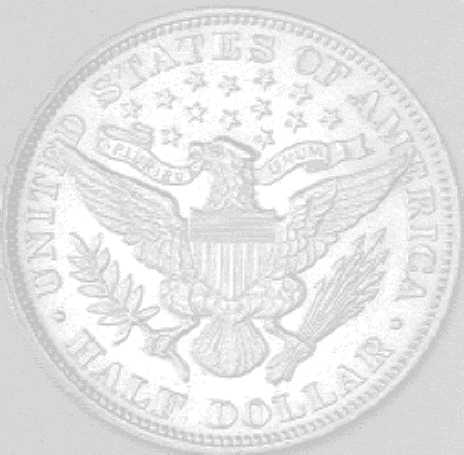
|
|
||
|
|
|
|
|
|
||

-22-
FOR BETTER OR WORSE:
The Panic Of 1857
Trouble continued
to brew as the precious metals were hoarded. In the autumn of 1857 panic
returned. According to Mr. Hugh McCulloch, President of the New Bank of
the State of Indiana, "All the Eastern banks except the Chemical Bank of
New York, which weathered the storm 20 years before, and all the Western
banks except the Kentucky banks and the Bank of the State of Indiana,
suspended specie payments" (White, 385).
In Illinois, the Panic revealed such a
disastrous breakdown of the banking industry that in the early months of
1858, "Eastern exchange was at 15 percent premium in Chicago." The banks
really had no capital except the security bonds in the hands of the
State Auditor. In the words of Mr. White, "They were not engaged in the
banking business in any proper sense of the word" (White, 356).
The Panic Of 1861
As the threat of
war loomed, the amount of security bonds began to decline, and the banks
again began to teeter on account of the changeable system of weights and
measures.
John Maynard Keynes wrote,
By a continuing process of inflation, governments can confiscate, secretly and unobserved, an important part of the wealth of their citizens. There is no subtler, no surer means of overturning the existing basis of society than to debauch the currency ... and does it in a manner that not one man in a million can diagnose (Saussy,10).
Tampering with the standards of
value always produces economic instability. Until such time as God shall
vacate His throne, He will honor them who honor Him; and He will leave
to their own destruction all who, supposing themselves to be wiser than
He is, choose to ignore His Law.
The worthlessness of paper "money" again became
apparent, but to people who could not discern what they saw, it appeared
as though the value of the precious metals had appreciated. People
esteemed paper "money" less and less, and renewed their appreciation for
the precious metals. On December 28, 1861, the banks suspended specie
payments. Currency could no longer be exchanged for gold and silver.
Panic resulted. As a result, Illinois passed an act declaring no bank
should consider as capital bonds deposited to secure its circulating
currency (White, 357).
The Legal Tender Bill
On February 25, 1862, Congress enacted the Legal Tender Bill. A legal tender law adds nothing to the value of gold or silver (White, 42), nor does demonetizations lessen the value of the precious metals (White,43). A legal tender law is enacted in an attempt to make illegitimate tender such as paper a "legitimate" tender. It is therefore legislation that is without conscience. It is "legal" plunder, but it is "unlawful" nonetheless. A legal tender law forcibly compels people to accept what is valueless as if it were something of value. As Mr. White observes, the masses are so enmeshed in the social fabric that they cannot extricate themselves (White, 40).
"Black Friday"
Then came "Black
Friday." Mr. Jay Gould, President of the Erie Railroad, formulated a
plan to obtain all gold available on the market. With a clique of
speculators and Tammany Hall politicians, he plotted to manufacture a
shortage of the metal and thus compel merchants to obtain gold from them
at unconscionable fees. They placed a man in the Gold Exchange who
succeeded in "buying" 60,000,000 "dollars" of gold. Two Tammany judges
placed the Gold Exchange Bank in receivership, and enjoined the Gould
creditors to prosecute their claims against the conspirators only in
their courts.
In 20 days, the parity of gold soared from 133 to
162. On Friday, September 24, 1869, about 250 merchants were forced to
obtain gold from the Gould brokers. The banking community was "black"
with terror. Business convulsed. A Congressional Committee reported,
Hundreds of firms engaged in legitimate business were wholly ruined or seriously crippled ... For many weeks the business of the whole country was paralyzed ... The foundations of business morality were rudely shaken . . ." (White, 186).
Long ago, Solomon
declared "He that withholdeth corn (to create a shortage in order to
increase the price of it) the people shall curse him: but blessing shall
be upon the head of him that selleth it." (Proverbs 11:26)
The villain was not gold that God created
precious, but the presence of paper “money" that brought confusion and
convulsion to the market place. Mr. White concluded, "Black Friday and
its evil consequences were due to the existence of bad currency and a
fluctuating standard of value” (White, 186). “divers weights and
divers measures, both of them are alike abomination to the Lord.”
